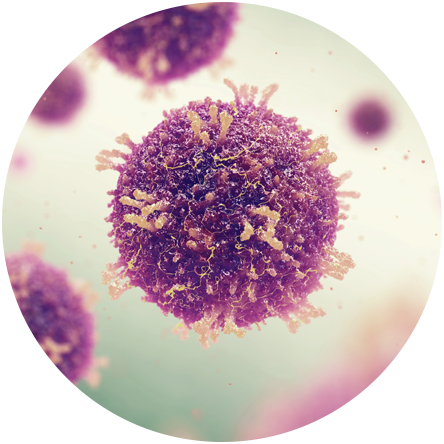Lipid profile Health
Assessment of the relationship between microbiota and cardiovascular diseases
The significance of the gut microbiota in cardiovascular disease has been discussed for several years. The gut microbiota is the collection of microorganisms that colonize the gastrointestinal mucosa (mainly the intestinal mucosa) and constitute an integral part of the human body. Currently, the gut microbiota is considered to be a ‘super organ’ performing many functions in the human body: it is responsible for the development and functioning of the immune system, particularly the innate immunity, development of the intestinal epithelial barrier, induction of anti-inflammatory cytokines, production of vitamins (mainly B group vitamins and vitamin K), digestion and absorption of nutrients (including fat and cholesterol), and metabolism of many compounds, including bile acids and cholesterol (Valdes et al. 2018). Thus, the gut microbiota can regulate the serum levels of total cholesterol, LDL-cholesterol, HDL-cholesterol, triglycerides, and non-HDL-cholesterol., i.e. the main serum determinants of cardiovascular risk. Atherosclerotic cardiovascular disease prevention strategies are determined based on cardiovascular risk assessment. The management strategy for patients at high-to-very high cardiovascular risk has been precisely defined, and requires immediate pharmacological treatment. Medical treatment decisions for the low- and moderate-risk groups require, first and foremost, an assessment of the effectiveness of lifestyle interventions and consideration of a number of additional factors affecting the risk level. Such decisions may depend on modifications of the gut microbiota composition achieved by changing dietary habits, increasing physical activity, and modifying a number of other aspects of lifestyle, as well as oral probiotic supplementation. The results of double-blind randomized controlled studies indicate that selected oral probiotic strains may modify the serum levels of individual lipid fractions, including LDL- and total cholesterol (Gadelha and Bezerra, 2019). The species proven to exert beneficial effects on the lipid profile include Lactobacillus plantarum and Bacillus coagulans (Costabile et al. 2017, Fuentes et al. 2013, Majeed et al. 2016).
Valdes AM, Walter J, Segal E, Spector TD. Role of the gut microbiota in nutrition and health. BMJ. 2018 Jun 13;361:k2179. doi: 10.1136/bmj.k2179
Gadelha CJMU, Bezerra AN. Effects of probiotics on the lipid profile: systematic review
J Vasc Bras. 2019 Aug 9;18:e20180124. doi: 10.1590/1677-5449.180124
Costabile A, Buttarazzi I, Kolida S, Quercia S, Baldini J, Swann JR, Brigidi P, Gibson GR. An in vivo assessment of the cholesterol-lowering efficacy of Lactobacillus plantarum ECGC 13110402 in normal to mildly hypercholesterolaemic adults. PLoS One. 2017 Dec 11;12(12):e0187964. doi: 10.1371/journal.pone.0187964
Fuentes MC, Lajo T, Carrión JM, Cuñé J.Cholesterol-lowering efficacy of Lactobacillus plantarum CECT 7527, 7528 and 7529 in hypercholesterolaemic adults. Br J Nutr. 2013 May 28;109(10):1866-72. doi: 10.1017/S000711451200373X
Majeed M, Nagabhushanam K, Natarajan S, Sivakumar A, Eshuis-de Ruiter T, Booij-Veurink J, de Vries YP, Ali F. Evaluation of genetic and phenotypic consistency of Bacillus coagulans MTCC 5856: a commercial probiotic strain. World J Microbiol Biotechnol. 2016 Apr;32(4):60. doi: 10.1007/s11274-016-2027-2.
NORDBIOTIC™ strains preparation
Subjects of our research in lipid profile health:
- L plantarum NORDBIOTIC™ LP140
- B coagulans NORDBIOTIC™ BC300
NORDBIOTIC™ studies are designed according to the rules of Evidence Based Medicine

NORDBIOTIC™ technology research is involved into a range of health areas
Are you a company?
Learn more about our solutions.
Visit nordicbiotic.com
